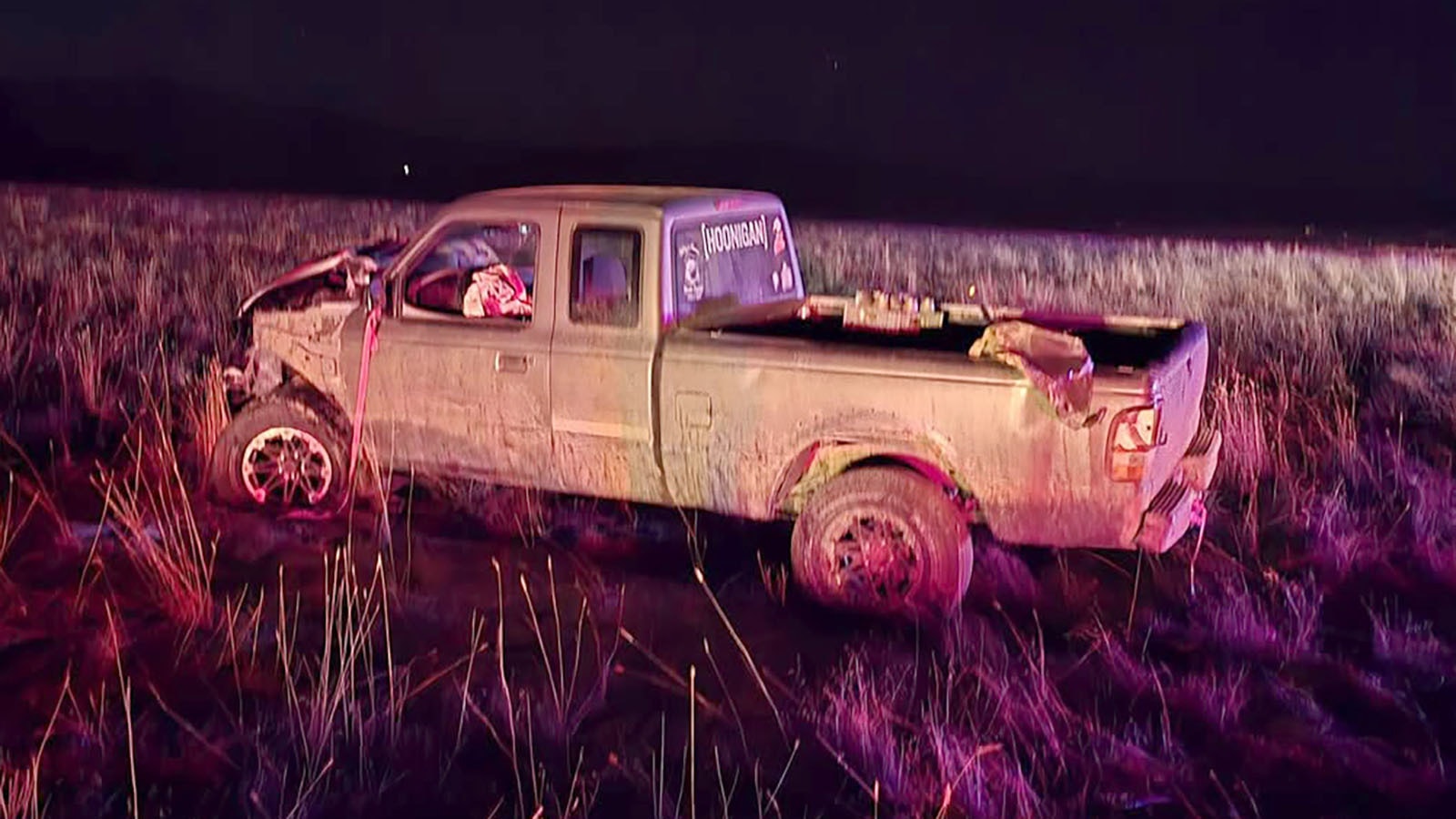A man who tried taking meth into an Evanston court two years ago doesn’t get another chance to defend himself against his resulting drug-possession conviction, the Wyoming Supreme Court ruled Tuesday.
Joseph W. Russell, 64, is serving a probation term after a Uinta County Sheriff’s Office deputy caught him trying to take meth into the local courthouse, court documents and prison records show.
Russell came to the Evanston Circuit Court on Nov. 14, 2022, for a civil hearing, and Uinta County Sheriff’s Deputy Dan Jensen was working court security that day.
Russell walked through the metal detector and it rang out, indicating metal in Russell’s pants pocket area, says a Wyoming Supreme Court ruling issued Tuesday.
Jensen patted down Russell’s body and found a Snus tobacco can.
Here, the deputy had testified that Russell took the can out of his own pocket, while Russell’s account was that the deputy fished the can out of Russell’s pocket.
The deputy either asked Russell to open the can or commanded him to open it, depending on whose account is referenced.
Once it was opened, the deputy observed that Russell was “trying to hide something from me,” which turned out to be a small plastic bag containing a crystalline substance, says the high court’s order.
Jensen believed it to be meth, seized the can and arrested Russell, who was ultimately charged with meth possession, a felony.
Jensen testified during the prosecution that followed that he was worried about something dangerous being in the Snus can. But the deputy conceded that he didn’t believe the can contained a razor blade or an explosive, and that he did want to see what was inside it.
Before Russell alerted the magnetometer, the deputy had told him he could lock his things in one of the court lockers, the document says.
Ultimately, the Uinta County District Court sentenced Russell to two years of supervised probation, with the threat of between one and three years in prison if he violates that probation.
Fourth Amendment Right Hits A Limit
Americans have a right to be free from unreasonable searches and seizures. In general (but with many exceptions), law enforcement agents have to get a warrant before searching someone.
Russell told the high court that Jensen shouldn’t have searched inside the Snus can because he didn’t have an individualized suspicion that Russell was doing wrong — and he didn’t have a warrant.
The state of Wyoming, which defended its prosecutor’s position on appeal, countered that Jensen’s search was constitutionally reasonable.
Courts have specifically addressed security screenings and taken notice of their necessity to keep courthouses safe, says the ruling.
And in such a “special needs search,” courts try to decide if the search was reasonable by weighing the public’s interests versus those of the individual.
The U.S. Supreme Court test for weighing that reasonableness is to consider three factors: The nature and immediacy of the government’s concern tied to the search; the nature of the person’s privacy interest, which is being intruded upon; and the character of the intrusion.
The government has a “compelling interest” to keep its courtrooms safe, the Wyoming Supreme Court’s ruling says, speaking to the first factor in the test.
On the other hand, a person’s privacy interest when walking into court is “minimal,” the ruling continues.
“A person does not have a ‘reasonable expectation of absolute privacy’ in a ‘public facility where all members of the public (are) subject to a routine search,’” says the ruling, quoting from an earlier case.
In other words, if everyone’s being searched and everyone expects to be searched, then there’s nothing unreasonable about the search done on one man in particular.
Russell countered, saying that just because he had a metal Snus can on him shouldn’t have meant that the can should automatically have been singled out for a further search.
“We disagree,” wrote the high court, adding that when Russell walked into the courthouse, he and his Snus can both relinquished their expectations of privacy.
Russell cited a case in which an officer searched a wallet that a man he was purportedly helping had dropped. The officer found drugs, and the court sided with the man rather than the officer.
That case is not the same as Russell’s, said the Wyoming Supreme Court, because the man with the wallet wasn’t consenting to a search by walking into a known search zone.
Invasive
By Russell’s argument, the search became invasive when Jensen ordered him to open the Snus can.
Again, the high court disagreed, and said that the can could have contained something too dangerous for court after all.
“Deputy Jensen’s subjective intent is irrelevant,” the court added.
Russell also argued that Jensen should have just told Russell to put the Snus can somewhere outside the courthouse or throw it away.
That would have accomplished the government’s goal of protecting the courthouse, but it wasn’t constitutionally required, the high court countered.
Russell is due to complete his probation by December 2025.
Clair McFarland can be reached at clair@cowboystatedaily.com.





